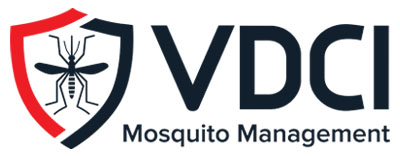Protecting Humans And Animals From Mosquito Bites and Diseases
While mosquitoes are a natural part of many ecosystems, some agricultural practices can increase their populations well beyond natural levels. Mosquitoes can transmit diseases to both people and animals, as well as cause serious annoyance problems. In much of the U.S. irrigated agricultural lands are among the highest producers of both aggressive nuisance mosquitoes and the species that carry West Nile virus and other mosquito-borne diseases.
Any water source that stands for more than 5 days without soaking in can become a source of mosquitoes. By taking the actions below, you can help prevent the spread of disease, and reduce mosquito nuisance problems, by using physical control methods. By physically manipulating the amount of standing water that occurs on agricultural lands, it also reduces the need for biological controls and chemical insecticides.
We encourage agricultural land users to take the following actions on their irrigated properties whenever possible:
- Schedule irrigation practices that eliminate or reduce excess watering.
- Allow irrigation water to soak in completely before turning out more water.
- Inspect fields for adequate drainage and broken pipes, checks, sprinklers, and head-gates.
- Eliminate standing water from pastures and fields by maintaining good grading practices.
- Repair ditches to prevent seepage of water.
- Ensure ditches and laterals flow properly and are not clogged or blocked.
- Keep margins clear of weeds and other vegetation along fields, pastures, ditches, and drainage channels to reduce standing water and the opportunity for mosquito breeding.
- If possible, use sprinkler systems to apply water rather than flood irrigation.
- Completely drain and replace water in animal troughs or drinkers at least once per week or consider treating them with Bti briquets on a regular basis (follow product labeling).
- Do not use excess fertilizer, as it can leach into irrigation run-off, making mosquito production more likely downstream.
- Do not allow containers or drums to hold water in them or on them. Empty them, remove them, or store them upside down or indoors.
- Keep field roads and two-tracks graded or level and fill any ruts that develop.
- Dispose of used tires at a proper disposal facility.
- Ensure equipment/machinery doesn’t hold water by covering or storing indoors.
Watch to Learn About The 4Ds
 Since 1992, Vector Disease Control International (VDCI) has taken pride in providing municipalities, mosquito abatement districts, industrial sites, planned communities, homeowners associations, and golf courses with the tools they need to run effective mosquito control programs. We are determined to protect the public health of the communities in which we operate. Our mosquito control professionals have over 100 years of combined experience in the field of public health, specifically vector disease control. We strive to provide the most effective and scientifically sound mosquito surveillance and control programs possible based on an Integrated Mosquito Management approach recommended by the American Mosquito Control Association (AMCA) and Centers for Disease Control and Prevention (CDC). VDCI is the only company in the country that can manage all aspects of an integrated mosquito management program, from surveillance to disease testing to aerial application in emergency situations.
Since 1992, Vector Disease Control International (VDCI) has taken pride in providing municipalities, mosquito abatement districts, industrial sites, planned communities, homeowners associations, and golf courses with the tools they need to run effective mosquito control programs. We are determined to protect the public health of the communities in which we operate. Our mosquito control professionals have over 100 years of combined experience in the field of public health, specifically vector disease control. We strive to provide the most effective and scientifically sound mosquito surveillance and control programs possible based on an Integrated Mosquito Management approach recommended by the American Mosquito Control Association (AMCA) and Centers for Disease Control and Prevention (CDC). VDCI is the only company in the country that can manage all aspects of an integrated mosquito management program, from surveillance to disease testing to aerial application in emergency situations.

